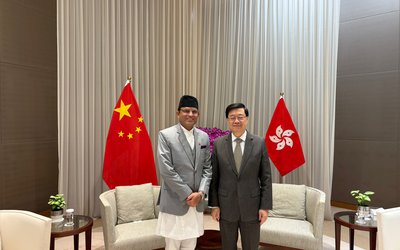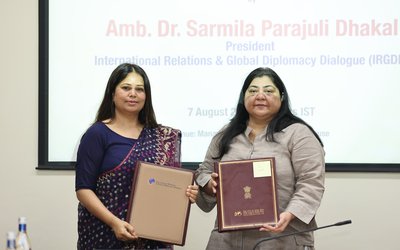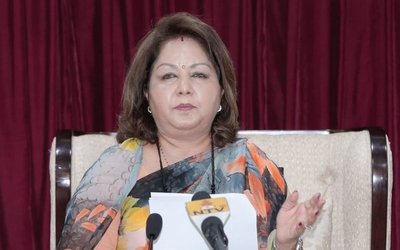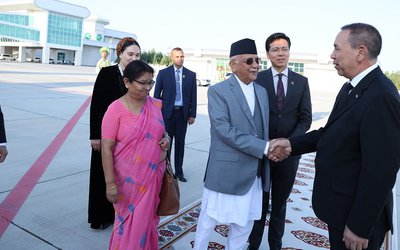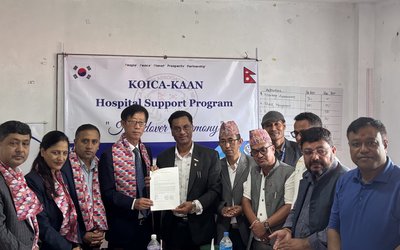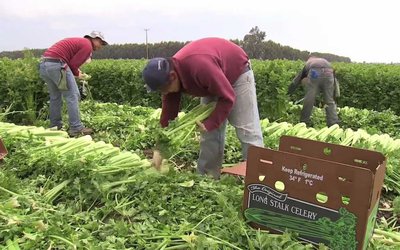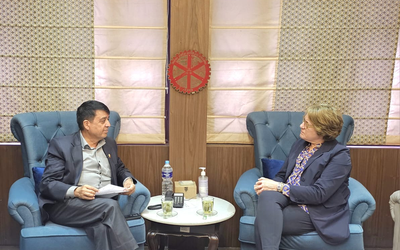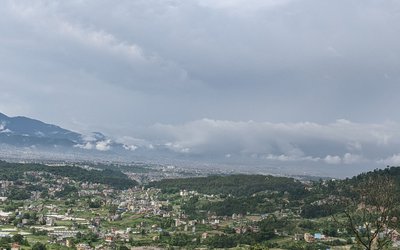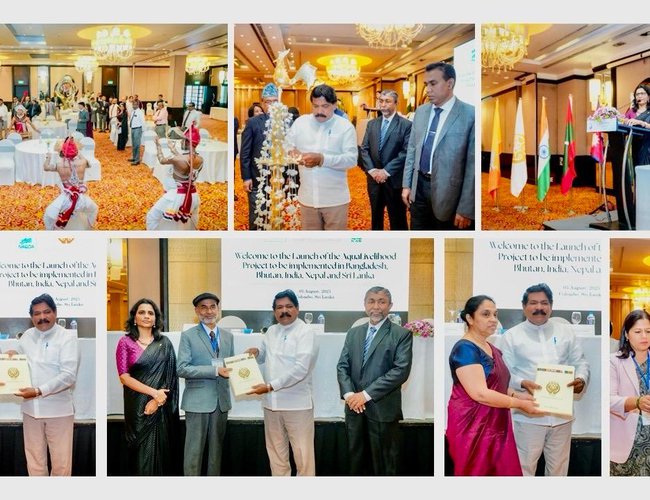
The SAARC Development Fund (SDF), in partnership with leading national institutions and technical government agencies of the five SAARC member countries, officially launched the Aqua Livelihood Project in Colombo, Sri Lanka.
Graced by Minister of Fisheries of Sri Lanka, Ramalingam Chandrasekar, as the Chief Guest, the launch marks a pivotal regional effort to uplift smallholder fish farmers and improve nutrition security across the region.
The three-year regional initiative represents a total investment of USD 3.97 million, including a USD 3.23 million grant from SDF and USD 739,109 in in-kind co-financing. The project will directly benefit over 120,000 rural households, 30% of whom are women, across Bangladesh, Bhutan, India, Nepal and Sri Lanka.
Titled “Livelihood Enhancement of Small-Scale Fish Farmers and Nutrition Security of Rural Masses in the SAARC Region through Aquaculture Development”, the project-known as Aqua Livelihood - is spearheaded by Indian Council for Agricultural Research-Central Institute of Freshwater Aquaculture (ICAR-CIFA), in close collaboration with government agencies from each participating country:
Department of Fisheries in Bangladesh, National Research and Development Centre for Aquaculture in Bhutan, Indian Council of Agricultural Research, India, Central Fisheries Promotion and Conservation Center in Nepal and the National Aquaculture Development Authority of Sri Lanka.
Aqua Livelihood responds to two critical regional priorities: Strengthening the livelihoods of small-scale aquaculture farmers and addressing malnutrition through sustainable fish production systems.
The project will be implemented through three strategic components:
- Survey and Technology Identification – Mapping aquaculture inputs, feed, seed, and promoting inclusive practices
- Infrastructure Development – Establishing pilot-scale feed mills and fish hatcheries to enhance local production
- Capacity Building and Knowledge Sharing – Conducting cross-border stakeholders’ training and on-farm demonstrations with a strong focus on gender equity and knowledge exchange
At the launch, Hon’ble Minister Ramalingam Chandrasekar underscored the critical role of the AquaLivelihood initiative in transforming the aquaculture sector and bolstering regional food and nutrition security. He stated that Aqua Livelihood is not merely a project, but a timely and transformative journey toward a more resilient future for small-scale farmers. “As our nations emerge from the shadows of the pandemic and ongoing economic challenges, this initiative serves as a unifying force by bringing together Member States, governments, researchers, and communities to uplift livelihoods, enhance nutrition and drive collective progress,” the Minister said.
Echoing this sentiment, IroshaCooray, Officer-in-Charge of SDF, said:“This project exemplifies the power of regional collaboration in addressing shared challenges. By empowering small-scale fish farmers, particularly women, and fostering knowledge exchange, AquaLivelihood strengthens the foundations of food security, sustainable development and regional solidarity in our region.”She said that the initiative is fully aligned with the SAARC Charter, SAARC Social Charter, and SDF’s mission to promote poverty alleviation, womenempowerment and regional integration.
With its strong emphasis on scientific innovation, inclusive development and policy synergy, AquaLivelihood is set to become a flagship regional initiative driving equitable growth, resilient food systems, and long-term prosperity across the region.
Fish remains a key protein source in South Asia, sharing over 60% of animal protein supply in countries like Bangladesh, Sri Lanka and Nepal. Aquaculture has shown significant growth in the region with 11% in Nepal, 5.4% in Bangladesh, and 6-8% in India over the past decade. The fisheries sector is also a major economic driver, contributing 24% of agricultural GDP in Bangladesh and supporting the livelihoods of millions.
The Deputy Director General (Fisheries Science) of ICAR said that “As the lead country, India is proud to partner with Bangladesh, Nepal, Bhutan and Sri Lanka in this SDF-supported initiative aimed at strengthening livelihoods and nutrition through sustainable aquaculture. This project reflects our shared commitment to regional cooperation, policy alignment, and inclusive growth in the fisheries sector across South Asia.”
Dr. Shiba Shankar Giri, Project Coordinator and Head of the Fish Nutrition & Physiology Division at ICAR-CIFA, reflected on the project’s origins:“The policy dialogues and nine policy briefs we developed during the COVID-19 pandemic laid the groundwork for what has now become the AquaLivelihood Project. Seeing this vision realized is deeply rewarding. It is a collective regional commitment to transforming rural aquaculture into a vehicle for sustainable livelihoods and nutrition.”
The Director General of the National Aquaculture Development Authority of Sri Lanka (NAQDA) Dr. J. M. Asoka said that the AquaLivelihood Project represents a timely and strategic intervention for the South Asian region. By focusing on small-scale aquaculture, it not only enhances income opportunities for rural communities but also supports national and regional goals for food and nutrition security. “For Sri Lanka, this project complements our vision and strengthens our collaboration with neighboringcountries to build a more resilient and inclusive aquaculture sector,” she said.
The AquaLivelihood Project will be implemented in selected locations across five SAARC Member States: Bangladesh (Mymensingh, Narsingdi, Bogura, Bagerhat, Satkhira), Bhutan (Lhamoizhingkha, Chekiling and selected areas in Sarpang, SamdrupJongkhar and Pemagatsel districts), India (Odisha, West Bengal, Punjab, Karnataka, Chhattisgarh, Tamil Nadu), Nepal (Janakpur, Bhairahwa, Chitwan, Morang, Jhapa, Sunsari), and Sri Lanka (North Central and North Western Provinces).
The launch of this regional project will be followed by a two-day inception workshop with implementing partners from Bangladesh, Bhutan, India, Nepal and Sri Lanka to establish a shared understanding of project goals, align implementation strategies, and ensure a coordinated and impactful rollout across the region.
- 120,000 Nepali Youths Reach South Korea for Employment
- Aug 10, 2025
- Consul-General of Nepal for Hong Kong Special Administrative Region (HKSAR)
- Aug 10, 2025
- IRGDD of Nepal and ICWA of India Sign Landmark MoU to Enhance Bilateral Ties in New Delhi
- Aug 10, 2025
- FNCCI President Dhakal meets CEO Rene of Spanish Chamber of Commerce
- Aug 10, 2025
- Gaijatra Festival 2025: Importnce And Significance
- Aug 10, 2025
